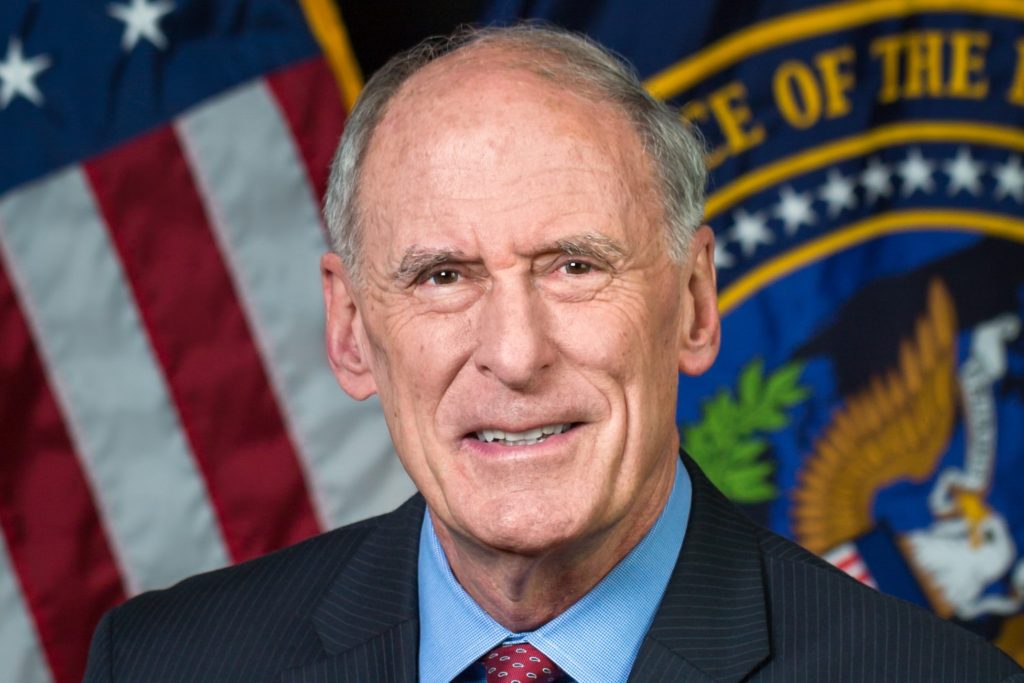Introduction
The 21st century political order is changing its direction towards new alliances that would shape the future discourse of the new world. Among the actors that would like to stay relevant in the world to come are the United States of America, China and Russia. Their role is very much dependant on the alliances they made with those of the states that have developed themselves as means of transformation. Pakistan and India are among those states that have developed themselves as means of transformation to shape the future discourse of new world. It is believed that the policy makers in India and U.S. has converged their political future. Both India and the U.S. fear that the rise of China would compromise their hard power in the new world, therefore they need to counter such a possibility by forming an alliance of their own. On the other hand, Pakistan is a close and trustworthy partner of China, which makes both of them an ideal counter force for India and U.S. respectively. The Indo-US nexus to negate Pakistan and China could transform the region into a battlefield of modern war between these four states.
Russia plays an important and decisive role in this equation and if Moscow decides to stay neutral then the Indo-US alliance would most probably become successful in sabotaging the stability of the Sino-Pak alliance. In case of Moscow’s alliance with China and Pakistan, the future of the new world would prevail with a more just order. By exposing the latest trends of US foreign policy in South Asia, this article brings a fresh insight for policy makers in Pakistan to review their traditional reliance over Washington. As a recommendation, the conclusion of the article will suggest an alternative discourse and possible exposure to look for new avenues for Pakistan’s foreign policy.
US Foreign Policy Trends
In April this year, Lisa Curtis was appointed as US President’s counselor on South Asia, the logical question arises –who is she and what is her background? She was previously a senior researcher in the Heritage Foundation and as a researcher and analyst her stance in her publications concentrated on the necessity of a tough approach to Pakistan, she repeatedly expressed the necessity of imposing political and economic pressure on Islamabad. Lisa Curtis believed that the volume of military and finance assistance to Pakistan should be dramatically reduced and that Islamabad must also be excluded from the list of “main US partners outside NATO”. Furthermore, she was openly sympathetic to India. In one of her latest reports one can find the scenario of proclaiming Pakistan a state sponsoring terrorism.
From Pakistan’s strategic interest, it seems there are some grounds to be skeptical about Lisa Curtis taking such a biased position. Her appointment matches the previously announced readiness of Donald Trump to sacrifice relations with Islamabad to enable US cooperation with New Delhi. The ongoing dichotomy of US foreign policy that is neither regional in its perspective nor it has potential to hold global sense of maturity. Moreover, the imbalance of US foreign policy in South Asia is causing great strategic risks to her permanent political image. Although totally independent to choose its future discourse, Pakistan is the biggest victim of Washington’s changing priorities.
In this mantra of maneuverability, the obvious US efforts to widen economic cooperation with India is aimed not only on deterring China but also on manipulating and in a sense blackmailing Islamabad on some issues. Washington is seriously concerned about the growing independence of Pakistan’s foreign and internal policy. Let us try and get a deeper understanding of this strategic equilibrium. The US is selling India different types of modern high-precision weapons and igniting hostility in Indian hearts against China and Pakistan. That provides an incentive for New Delhi to criticize Islamabad and negates the very positive role of Pakistan to maintain peace and security in South Asia, particularly in Afghanistan. At the end of the day this alliance of strategic affairs between the US and India creates political grounds to denounce Pakistan as an aggressive and irresponsible member of the international society–some sort of a Bogeyman. That’s what manipulation and maneuverability is aimed at for the Trump and Modi regime.
In fact, the stigma of terror belongs to the orchestration of instability which is vested in the emerging strategic alliance between India and USA. Washington continuously blames Islamabad of her inconsistent role in the war on terror and extremism in Pak-Afghan region; a mantra that had lost its value over the period of time. Moreover, like a pendulum politics, US political and military officials have, one way or the other, depicted Pakistan as a bad guy in the region. The actual problem is not the way US portrays Pakistan, it is the dual-standards that dictates the very nature of US foreign policy in South Asia.

Let us be very clear. On the one hand, the efforts of Pakistan to mitigate the threats of extremism and terrorism are not appreciated by the political elites of Washington but on the other hand a country like India which is continuously feeding terrorism in the region through its serving naval officers like Kulbhushan Yadav is becoming the darling of the USA. What a dichotomy. Interestingly, American endorsement of Indian claims of surgical strikes is again testimony of fueling instability in the region. Gen Joseph Votel, commander of the US Central Command, who is responsible for implementing the US military strategy in the Pak-Afghan region, noted that “India had responded militarily to terrorist attacks in India-held territory earlier this year”.1 Pakistan denies the Indian claim, saying that Indian forces never crossed into Pakistani territory but the US general endorsed the Indian claim. Moreover, Gen Joseph deliberately forgot to mention Indian RAW agent Kulbhushan Yadav who fueled and sponsored terrorism against Pakistan and China.
A rational understanding suggests two approaches to this imbalance: (i) the new US administration is ill-prepared (or ill-intentioned) and has no tangible understanding of Pakistan’s great sacrifices and contribution in fighting the war on terror and (ii) the US political and military elites have decided to work with forces like India that negates the very role of Pakistan to stabilize the region by sanctioning, pressurizing, and isolating Islamabad.
It is not Pakistan that needs to do more, it’s the US which has to do more to reflect a balanced approach in the region. US political elites in Washington who seem mesmerized by the pseudo democratic values of New Delhi, must understand that Pakistan is not isolated any more. This should be clear when it comes to denounce the efforts of Pakistan, Islamabad has choices far more relevant and productive than the USA. If the US thinks that fluid approaches like politically pressurizing, reducing economic assistance or isolating Pakistan would give her space to make Islamabad more cooperative and put it back under US influence, this is not going to happen.
The carrot and stick approach by the US has been used may times, this is actually humiliating to the bravery of the Pakistani nation. For example, in April 2017 Pakistan was reimbursed $550 million of the $900 million Pakistan was authorized to receive in fiscal year 2016. The United States withheld $50 million in military reimbursements to Pakistan because Defense Secretary Jim Mattis believed that Islamabad has not done enough to blunt the Islamist militant Haqqani network. Out of the remaining, $300 million had been reprogrammed for other purposes, which again is the incredible decision to convert finance assistance into loans.2 Such decisions have not been taken for the first time where the Pentagon had declined to make military reimbursements to Pakistan. Similar approaches were used against countries like Philippines and Ukraine while on the contrary, US relations with Israel and Egypt have not faced any negative trends.
The true reflection and evolving US attitude towards Pakistan can be understood by the efforts of Ted Poe—Chair of the House of Subcommittee on Terrorism, who introduced a bill in the Congress that pushed the American government to declare Pakistan a “state sponsor of terrorism”, or give a detailed justification for not doing so in a limited time. His words were: “Not only Pakistan is an untrustworthy ally, Islamabad has aided and abetted enemies of the United States for years.”3 Soon after that he initiated in Congress an act to proclaim Pakistan a state sponsor on terrorism. This effort of Congressman Ted Poe, however has not gathered enough support, but now we have Lisa Curtis at the wheel and one cannot be sure that the anti-Pakistan lobby would not intensify its efforts of informational warfare through propaganda against Islamabad.
One can also find some other grim trends. For example, Trump and his team are still unable to clarify the real aims of Washington’s new strategy in Afghanistan, this is a pity because the US indulges in its scapegoat policy blaming Pakistan for the ongoing instability in Afghanistan. Just to put the record straight, I want to refer General (Retd) Sir Rupert Smith, who in his book ‘The Utility of Force: the Art of War in the Modern World’ refers to the US military approach to combat dynamics of modern war as ill-suited and failure.4 Disbelieving Pakistan’s efforts to successfully mitigate the threats of terrorism will not serve the purpose rather American elites needs to focus on their own failures. Propagating against Pakistan is not a good politics. The diplomatic trends in Islamabad also suggest that the ongoing instability in the region is an episode of American failures. Putting blame on Islamabad is nothing more than the convenient game of creating a scapegoat.

Surprisingly, Washington is also aligning its stance and interest to the Indian claims over Kashmir. For example, Daniel R. Coats—Director of National Intelligence in May 2017 claimed in Senate that terror groups in Pakistan would pose threats to American national interests in the region. He also expressed confidence that they (the terrorist groups) would continue to attack different facilities and entities in India and Afghanistan.5 Could it be one of the explanations behind the growing American military presence in Afghanistan and getting an endorsement from its Indian counterparts to back-up prolonged chaos in its surroundings? Moreover, Indian participation in this game is necessary to maneuver and control the shaky situation in Pakistan as it is always profitable for New Delhi to destabilize the inner political structure of Islamabad. With such a nexus both India and the USA could get multi-faceted opportunities to blackmail the Sino-Pak establishment.
Both India and U.S. have committed blunders to sponsor the terrorism in South Asia. Because the forces in Kashmir and Afghanistan are not accepting their will, neither is Pakistan surrendering its commitment to support the right of self-determination for Kashmir and dialogue in Afghanistan, should we accept the proclamation of terrorism by India and USA? There is no wave of terrorism in Kashmir rather it is a freedom struggle, which is the fundamental right of the people of Kashmir. The resolutions of the United Nation and all instruments of human rights depict the true struggle of the Kashmiri people. Moreover, the ongoing conflict in Afghanistan is a political battle rather than terrorism. Therefore, to deter the resilience of Kashmiris and Afghanis, both India and USA are united and framing everything under the title of terrorism.
Conclusion
The exposure and trends in the U.S. foreign policy are reflective of its changed perspective towards Pakistan that further identifies increasing divergence between the two nations. Is there any adequate and effective counter measures? Definitely, there are! With cooperation and strengthening of ties with other powerful regional or global players which are able to oppose American hegemony. SCO could be one of the more perspective tools for that as it provides wide opportunities to develop mutual understanding and getting support of China and Russia especially in counter-terror efforts without taking into account Washington’s “double standard” and “black hearted” policy. Pakistan should firmly hold on to the keys of the kingdom and keep the flag of its independence high.
End Notes
1 “Statement of General Joseph l. Votel—Commander U.S. Central Command before the Senate Armed Services Committee on the posture of U.S. Central Command,” 09 March 2017; available online at: http://www.centcom.mil/Portals/6/Documents/Votel_03-09-17.pdf (Accessed on September 20, 2017).
2 Idrees Ali, Phil Stewart, “U.S. withholds Pakistan reimbursement over Haqqani network: Pentagon,” Reuters, July 21, 2017. Available online at: https://www.reuters.com/article/us-usa-pakistan-military/u-s-withholds-pakistan-reimbursement-over-haqqani-network-pentagon-idUSKBN1A61MX (Accessed on September 25, 2017).
3 Congressman Ted Poe, “Chairman Poe Introduces Pakistan State Sponsor of Terrorism Act Of 2017,” Available online at: https://poe.house.gov/2017/3/chairman-poe-introduces-pakistan-state-sponsor-of-terrorim-act-of-2017 (Accessed on September 25, 2017)
4 For more details please see, Rupert Smith, The utility of force: the art of war in the modern world (Vintage Books USA, 2008).
5 Daniel R. Coats—Director of National Intelligence, “Statement for the Record Worldwide Threat Assessment of the US Intelligence Community Senate Select Committee on Intelligence,” May 11, 2017. Available online at: https://www.dni.gov/files/documents/Newsroom/Testimonies/SSCI%20Unclassified%20SFR%20-%20Final.pdf (Accessed on September 20, 2017)




